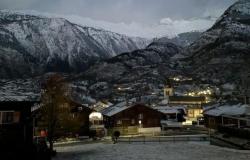As expected, the Betis passed over the Gévora: 1-6. Nobody congratulated the green and white players. As a substitute for war, the sporting clash between two unequal squads places the powerful in a somewhat uncomfortable situation, given that, even if they win, no fan will give them any merit. The small team, on the other hand, has nothing to lose. Their defeat is considered inevitable. So he can only succeed: either he wins the tie (“like winning the EuroMillion,” his coach acknowledged) or, at least, he will fall with honor, as long as he gives his all on the field. And that’s what the Gévora players did, finding the reward of scoring a goal in the last breath.
In this type of match, with the exception of the fans of the big team, the rest of the fans always go with the one who has no chance. Identification with the weak is a well-known behavior in anthropology and psychology. True, “man is a wolf to man.” But the predatory and selfish side does not exhaust his nature. As a gregarious animal, humans have an enormous capacity for empathy with the helpless. This is probably an archaic adaptation mechanism given that, for thousands of years, we lived in bands of hunter-gatherers with interdependent individuals. Other species let the sick person die because it is a burden, but among humans there is evidence of solidarity since Prehistory. At the Atapuerca site, from about 440,000 years ago, part of the skeleton of a bent individual with serious pathologies was found: he survived because the group helped him walk. A girl also lived with a congenital brain disease: someone took care of her, despite her few chances of moving forward. Another, with a deformed face, had to chew his food for years.
The KO tournament exemplifies the fight of David against Goliath: we are moved to see how waiters and administrators, who play soccer in their free time, do not lower their arms when facing professionals. We need to safeguard the utopia that sometimes life does not conform to the established script, according to which the big fish eats the boy. ‘Karate Kid’, ‘Erin Brokovich’, ‘Braveheart’ and other films are based on that story of the weak who stands up to the strong and, daring to do so, bringing out the best in themselves, their protagonists discover that nonconformity, conviction and The will constitutes powerful weapons.
They are movies; In real life, the little one usually bites the dust. We know it. But, for that very reason, the improbable gives us hope. We value those who attempt some unthinkable achievement, because it inspires us that we too should pursue our dream. We need heroes to survive because there is no life without the faith that another type of life is possible. We want to believe that, sometime, the footballers from a Badajoz district of 2,500 inhabitants can defeat a First Division great. And, waiting for the miracle, thousands of fans went to the stadium or sat in front of the television. It didn’t happen, naturally, but for 6 minutes (until the first goal), the world seemed different.
It is possible that the Betic player, whose mythical story of the ‘man who loses’ is related to that symbolism of the honorable defeat against the powerful, has mixed feelings in this type of match. Of course he wants his team to win, but, on the other hand, he cannot help but feel deep sympathy for the Gévora players and fans, given that he does not forget that, as a Betic, he was often in a situation of hopeless inferiority. . And yet, he fought against fate, knowing that there are many ways to win in life, even if one is the loser.
Senegal





